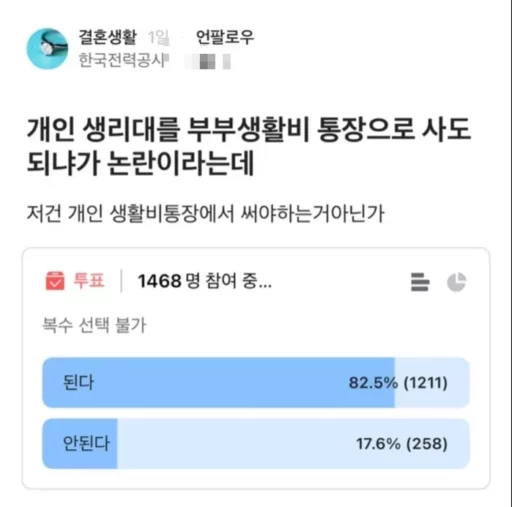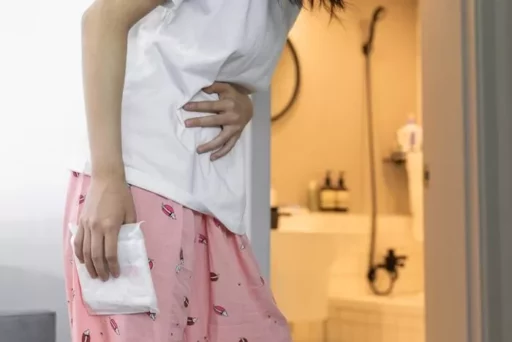'Can menstrual products be purchased with shared household expenses?' Online debate
An online debate erupted regarding whether a wife’s menstrual products and other hygiene items can be purchased from a couple's shared household expenses account. A majority of netizens expressed that there is "no problem" with this.
On the 9th, a post titled 'Is it controversial to buy personal menstrual products with a couple's shared expenses account?' was uploaded to the anonymous community Blind.

The author of the post expressed a negative view on the use of shared funds, stating, "Aren't those supposed to be paid for from personal living expenses?"
8 out of 10 voters say "no problem with shared expenses"
As of 2 p.m. that day, about 1,400 people participated in the poll, and over 82%, or more than 1,200 people, chose "it is acceptable." This indicates that purchasing menstrual products with shared household expenses is seen as natural. The opposing opinion slightly surpassed 17%.
The comments mostly supported this view. Criticism flowed in with remarks like, "If you don't want to share, just live alone," "Are you really a couple?" and "No wonder people are reluctant to marry." There were also comments such as "I’ll buy them for you, just don’t fight," and "If that's the case, whose money should we use to buy contraceptives?"

There were many reactions expressing fatigue over meticulously calculating couple expenses, with remarks like, "So if the man eats more, should we weigh the food during meals and adjust living expenses?" and "Are we going to count the amount of meat eaten and the number of showers?" Some even mocked the author, questioning whether they were "shocked" due to their workplace being listed as the Korea Electric Power Corporation.
Local governments working to expand hygiene product support
Meanwhile, menstrual products are essential for women. Some local governments are implementing programs to provide hygiene products to low-income women and teenagers.

Gyeonggi Province began supporting menstrual products for female teenagers in 2021, becoming the first metropolitan government to do so. However, about half of the eligible recipients still do not receive benefits due to financial issues.
Image source: Blind, AI image for understanding the article / ChatGPT, informational photo for understanding the article / Gettyimagesbank


